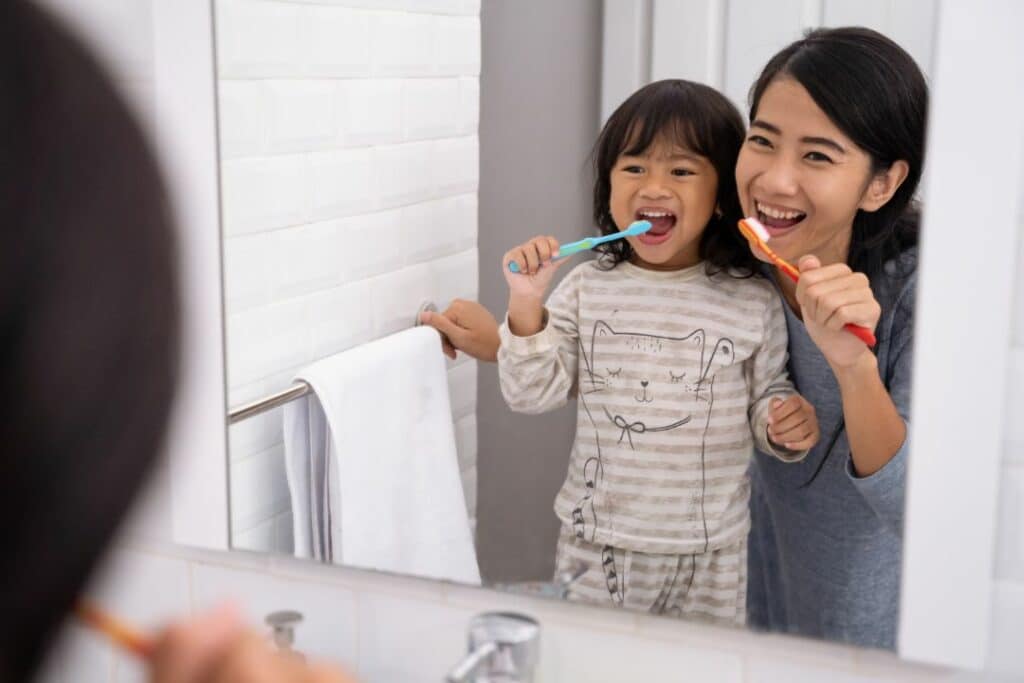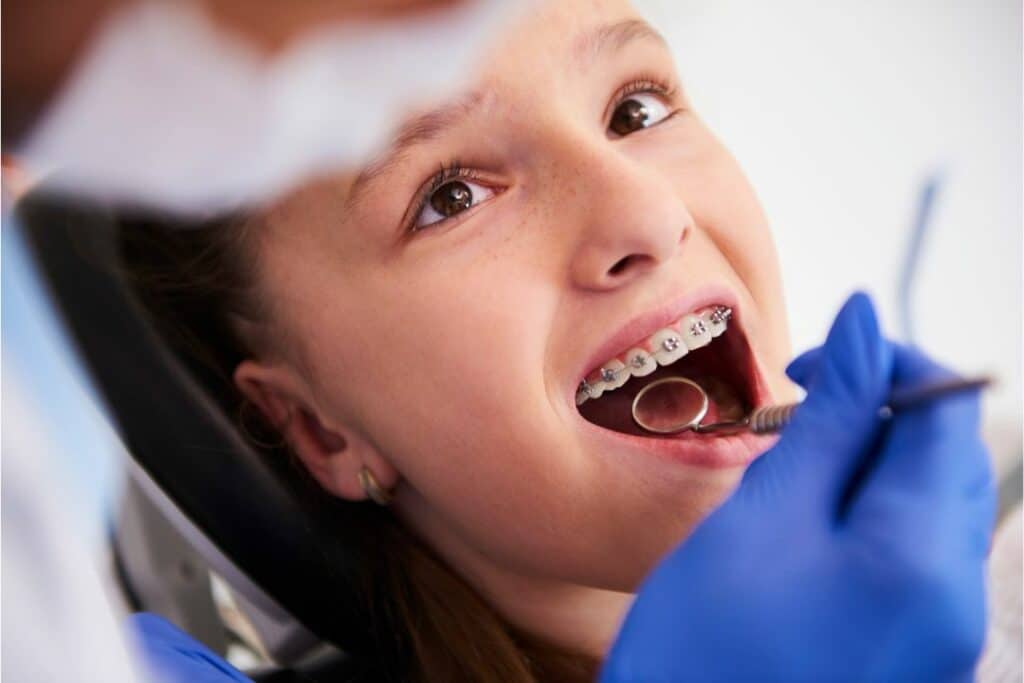Healthy teeth are an important part of a child’s overall health and well-being and it’s important to get them into a dental care routine from an early age. That’s why we have pulled together this handy post with dental tips for kids.
As children grow, so do their teeth and they are an important part of their development. From the way they talk to the way they eat their food, good dental care for children forms an important foundation for long-lasting oral health.
For many parents, it can be tricky to know when they should first start brushing their children’s teeth and there are lots of frequently asked questions about children’s dental care below.
Here in New Zealand, dental care for kids is free up to the age of 18 and you can find out more about children’s dentistry on our website. You can see a specialist paediatric dentist, however, good dental hygiene routines coupled with regular visits to your dentist should ensure the long-term oral health of your child.
Here are some of the most frequently asked questions about children’s dental care and some great tips to help keep your kids’ teeth healthy.
When should kids start brushing their teeth?

This question is a bit of a trick question as it is actually parents and carers who will first start the process of brushing and cleaning their child’s teeth.
Good dental care begins before the first tooth can be seen as teeth begin to form in a baby around the second trimester of pregnancy.
That’s why it is important to start their dental care routine as soon as they are born.
Before teeth begin to show
Before your baby starts teething, you should gently rub down their gums with a soft cloth to clean away any harmful bacteria.
As teeth begin to show
As soon as your baby’s teeth begin to show through, you should start the brushing process using a tiny amount of fluoride toothpaste (around the size of a grain of rice). There are several baby-approved toothpastes available here in NZ as well as infant toothbrushes.
When teeth begin to touch
Flossing is a practice that many adults are guilty of not doing enough of. To encourage children to floss on a regular basis, you can start this journey by flossing between your baby’s teeth as soon as they begin to touch to ensure no debris is left after eating.
Aged 2
As kids grow and develop, it’s important to teach them to spit out the water/toothpaste after brushing. Whilst it might taste minty, it can cause issues if they are regularly swallowing when brushing their teeth. As they reach the age of around 2, make sure you are encouraging them to spit after brushing.
Aged 3
Kids aged 3 and above can slowly start to increase the amount of toothpaste they use to maximise the results. They should never, however, use more than a pea-sized amount of toothpaste.
Supervision
As kids get older, they like to be able to brush their own teeth which is great, however, they should be supervised up to the age of seven or eight to ensure they are brushing correctly and not swallowing.
When should children visit the dentist?

Another great way to ensure kids are getting the proper dental care is to schedule regular visits to your dentist from around the time of their first birthday. Most babies begin teething around six months and so by the time of their first birthday, they will have a number of teeth that are formed and touching in their mouth.
A visit to the dentist at this age is a great opportunity for you to learn how to care for your baby’s teeth – how to brush properly, how to floss, and how much toothpaste to use.
Many adults have an unhealthy fear of the dentist, and this can come from not visiting as frequently as they should throughout their childhood. Irregular visits can mean more issues develop between visits that require further treatment which can be very off-putting to young people.
Regular visits to the dentist from an early age should reduce the risks of issues developing with teeth and this should make visits to the dentist a lot easier.
Preventing cavities
One of the most common dental issues for children is cavities.
Cavities develop when bacteria and food are left on and between teeth after eating and not brushed away. Acid then forms on the tooth which in turn softens the enamel until a small hole (cavity) forms.
Cavities are more common in children as their teeth are harder to brush. That’s why it is important to supervise your children up to the age of at least eight to ensure they are brushing thoroughly and reducing the possibility of a cavity developing.
What causes cavities?
As well as cavities developing if food is not brushed away after eating, cavities are also caused by sugary diets.
Eating a lot of food and drinks that contain sugar can lead to a number of issues for kids and these should be limited in their diets.
If they do eat something sugary or drink a fizzy drink, encourage them to rinse their mouth with water after to help to wash the sugary residue from their teeth.
How often should kids brush their teeth?
Like adults, kids should be encouraged to brush their teeth twice a day – once in the morning and once at night before they go to bed.
It’s important to build up this routine from an early age and you can start this process by brushing your child’s teeth up until the age when they can manage to do this properly themselves (this age varies).
In terms of flossing, once a day is ideal for flossing to ensure there are no bits of food that get caught between the teeth and to reduce any build-up of plaque.
Your dentist will be able to show you how to floss your child’s teeth and with regular visits to the dentist, your child will learn how to floss their teeth for themselves, ensuring they are doing it correctly from a young age.
Orthodontics

As your kids begin to transition from their baby teeth to their permanent teeth, it is possible they might require orthodontic treatment.
Here are Hamilton Dental Centre, Dr Dave Blom is a Dental Surgeon who has been treating orthodontic cases for 25 years. He will be able to advise you on the best course of treatment given your circumstances, while working closely with our orthodontic team to deliver fantastic results.
Orthodontics typically refers to the fitting of braces to help to straighten poorly aligned teeth. When teeth are misaligned, this can lead to a number of oral health issues including:
- Poor breathing patterns
- Hard to clean teeth
- Speech difficulty
- Low self-esteem due to crooked teeth
Kids from the age of seven and upwards can be eligible for orthodontic work if they are seeing early issues with the way their teeth are aligned.
Here at Hamilton Dental Centre, we are highly experienced in dealing with children and young people and make them feel as comfortable as possible when they visit us. To find out more about dental care for children, talk to one of the team today.
Related Posts
Site map
Services
Contact Us
T: 07 854 8905
E: info@thehdc.co.nz
3/111 Thomas Road,
Rototuna, Hamilton
copyright © 2025 Hamilton Dental Centre | Credit Terms | Web development by Digital Hothouse

